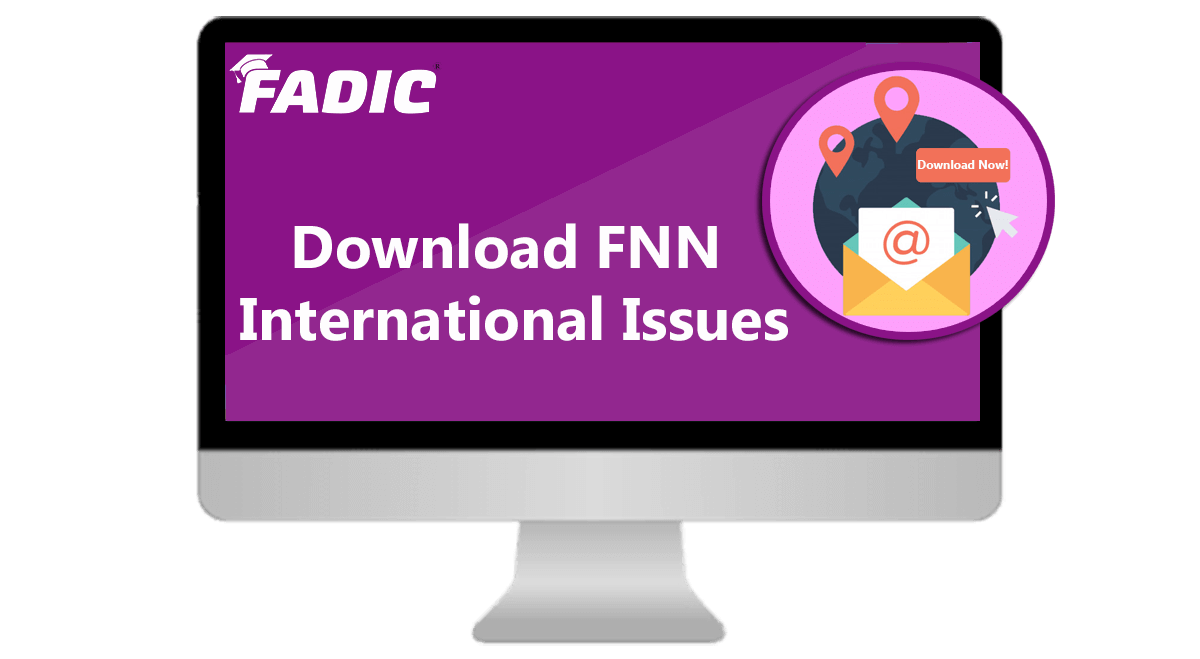4- Thursday Pharmacotherapy News – 16th December
1 – Ambulatory Care Pharmacy in Saudi Arabia; Definition, History, Present, Future Potentials, and Expected Challenges
- The ambulatory care pharmacy practice in the Kingdom of Saudi Arabia (KSA) is a fairly new but evolving specialty that has provided patient-centered care in various clinics over the past 20 years.
- It mainly resembles the United States (USA) in its structure and provides its services to patients mostly free of charge.
- The Saudi Vision 2030 and the new transformation in its health care system present many opportunities for ambulatory care clinical pharmacists with some expected challenges.
- In this review, a group of experts under the Saudi Society of Clinical Pharmacy (SSCP) umbrella propose a definition and comprehensively review the history of ambulatory care pharmacy practice in KSA, the currently available services, potential future opportunities, and expected challenges.
Source: ACCP
2 – Impact of Order Sentence Implementation on Outpatient Antibiotic Prescribing for Urinary Tract Infection and Skin and Soft Tissue Infection
- Due to the high volume of outpatient antibiotic prescribing, the Joint Commission now requires antimicrobial stewardship program (ASP) expansion to ambulatory practice settings. Unfortunately, ASP resources in these settings are scarce.
- The purpose of this study was to determine whether the implementation of antibiotic order sentences alongside education would improve antibiotic prescribing for urinary tract infections (UTI) and skin and soft tissue infections (SSTI).
- The primary objective was to compare the proportion of total guideline-concordant antibiotic prescribing before (pre-ASP) versus after (post-ASP) implementing order sentences. Guideline concordance was defined as antibiotic selection, dosing, and duration in accordance with the health system’s empiric guidelines.
- Implementing stewardship-focused order sentences significantly improved outpatient antibiotic prescribing for UTI and SSTI.
- Tailoring antibiotic order sentences may be a useful tool for ASP expansion into the outpatient setting with limited resources to allocate to stewardship efforts.
Source: ACCP
3 – Anticholinergic medication burden and cognitive function in participants of the ASPREE study
- Exposure to anticholinergic medications may be associated with cognitive decline.
- Understanding which cognitive domains are involved may provide insights into the mechanisms.
- Research question, what is the association between anticholinergic burden and specific domains of cognitive function in older adults who are initially without major cognitive impairment?
- Anticholinergic burden predicts worse cognitive function over time in initially dementia-free older adults, particularly for executive function (COWAT) and episodic memory (HVLT-R).
Source: ACCP
4- Role of the gut microbiome in cardiovascular drug response: The potential for clinical application
- Response to cardiovascular drugs can vary greatly between individuals, and the role of the microbiome in this variability is being increasingly appreciated.
- Recent evidence indicates that bacteria and other microbes are responsible for direct and indirect effects on drug efficacy and toxicity.
- Pharmacomicrobiomics aims to uncover variability in drug response due to microbes in the human body, which may alter drug disposition through microbial metabolism, interference by microbial metabolites, or modification of host enzymes.
- In this review, they present recent advances in our understanding of the interplay between microbes, host metabolism, and cardiovascular drugs.
- They report numerous cardiovascular drugs with evidence of, or potential for, gut-microbe interactions.
Source: ACCP
5 – Apixaban and rivaroxaban use for atrial fibrillation in patients with obesity and BMI ≥50 kg/m2
- Apixaban and rivaroxaban are increasingly used for thromboembolism prophylaxis in patients with nonvalvular atrial fibrillation (NVAF) and commonly in patients with obesity and body mass index (BMI) ≥50 kg/m2 despite limited data.
- This study aimed to establish the effectiveness and safety of apixaban and rivaroxaban in patients with NVAF and BMI ≥50 kg/m2.
- This study demonstrated that apixaban and rivaroxaban in patients with a BMI ≥50 kg/m2 for treatment of NVAF may be safe and effective at preventing thromboembolic events and had no increased risk of bleeding.
- Although, findings should be interpreted with caution and confirmed with additional studies.
- This study contributes to the growing body of evidence that direct oral anticoagulants (DOACs) may be effective and safe to use for the treatment of NVAF in patients with BMI ≥50 kg/m2.
Source: ACCP
6 – The role of maternal COVID-19 vaccination in providing immunological protection to the newborn
- Pregnant and postpartum individuals are known to have an elevated risk of severe COVID-19 compared to their non-pregnant counterparts.
- Vaccination is the most important intervention to protect these populations from COVID-19-related morbidity and mortality.
- An added benefit of maternal COVID-19 vaccination is transfer of maternal immunity to newborns and infants, for whom a vaccine is not (yet) approved.
- The data reviewed herein suggest that maternal SARS-CoV-2-specific binding antibodies are efficiently transferred via the placenta and breast milk following maternal mRNA COVID-19 vaccination.
- Moreover, antibodies retain strong neutralizing capacity.
- Antibody concentrations appear to be at least as high in infant cord blood as in the maternal serum, but lower in breast milk.
Source: ACCP

- Read more from FADIC Blog, with many articles with evidence based articles.
- Learn More Through FADIC® – Online Programs & Mini-Courses.
- Listen Now to FADIC Podcast focusing on varieties of pharmacist perspectives in specialties.
- Read More Now about FADIC Pharmacy Events to get more Experience.
Course Copyrights:
All Courses is meant for SINGLE user use only.
If more than one person acceced this course, they will be BLOCKED Forever.
FeedBack
FADIC 2021 Pharmacotherapy Daily News
(FNN)
Directed By/ Rasha Abdelsalam
FADIC Pharmacy’s Daily Newspaper works like this:
- Each business morning, you receive an email message with the text of that day’s FNN.
- The message has a link to a PDF file that can be viewed or printed format.
- Issues for the past reports.
Each and every business day, things change!!
- More articles are published
- New drugs are approved
- Research is presented at medical meetings, policy decisions affecting practice are debated and confirmed.
By subscribing to the FADIC 2020 Pharmacotherapy Daily News (FNN), a daily publication of the Daily News Network “FNN” will be sent to your Email.
📑 Sample of Monthly Newsletter 📥
You can keep up with what’s important
- You need not to be disturbed with many newsletters crowding your email inbox about everything.
- FADIC FNN’s provides you with each business day with a morning email summary of developments in all the areas critical to your clinical practice
FADIC 2021 Pharmacotherapy Daily News (FNN) Daily Emails Contain:
- Just-published articles in the biomedical literature
- Emphasis on the FOUR weekly major important medical journals such as “Lancet, BMJ, JAMA, and NEJM”
- In addition to the two internal medicine journals as“Annals and JAMA Internal Medicine”
- Finally, the leading journals in medical speciality areas such as: “IDSA, JACCP, Annals of Pharmacotherapy, and others”.
- News briefs covering newly approved drugs, warnings and recalls announced by FDA, Saudi FDA, research at medical meetings.
- Lastly, other important news from International Organizations such as “CDC, WHO, and others”.
Why FADIC 2021 Pharmacotherapy Daily News (FNN) ?
- It helps to keep up with the literature!
- Provide you with the Updated with the latest in your clinical practice. Wherever you are, and Whenever you need!
- Help you to share in the advance in clinical career. In addition to adding an impressive image to the pharmacists all-around!
Subscribe to FADIC 2021 Pharmacotherapy Daily News (FNN), for a publication of E-News
Read & Download FNN Issue 8 of April 2020 FNN News
With FADIC 2021 Pharmacotherapy Daily News (FNN), you Will …

Receive email notification everyday morning
As we all know, the world of clinical research is changing constantly. All medical news, clinical guidelines, and updates become available in your daily medical news issue.
You can read & download news every day
You can access your daily medical everyday morning, once you receive the email notification in the morning, and entre the website, and download your news issue.
You can print your daily news for work
You will receive your FNN daily medical news from international journals, and you can print it and share the latest journal club in your
The full-Text source will be available for you
If you need to know any further details or full-teat for any news, you can open the corresponding links that support you with further details.
You’ll Also Get These Awesome Bonuses…
Bonus #1. Download monthly FNN international issues (Value 300$)
As well as the daily news, there will be a monthly issue with the most important news all over the month, that will help you to stay updated, you can download it and print.
Bonus #2. Your FNN website account support (200$ Value)
You will have your own account in FNN Medical news, in FADIC website, that enables you to follow up on all the previous or missed issues, and read them to catch up on any missed news and download all of them.
Subscribe NOW in FNN – Special Offers for Group and Organisational Subscription
Course Copyrights:
All Courses is meant for SINGLE user use only.
If more than one person acceced this course, they will be BLOCKED Forever.

 Log in
Log in Sign up
Sign up



